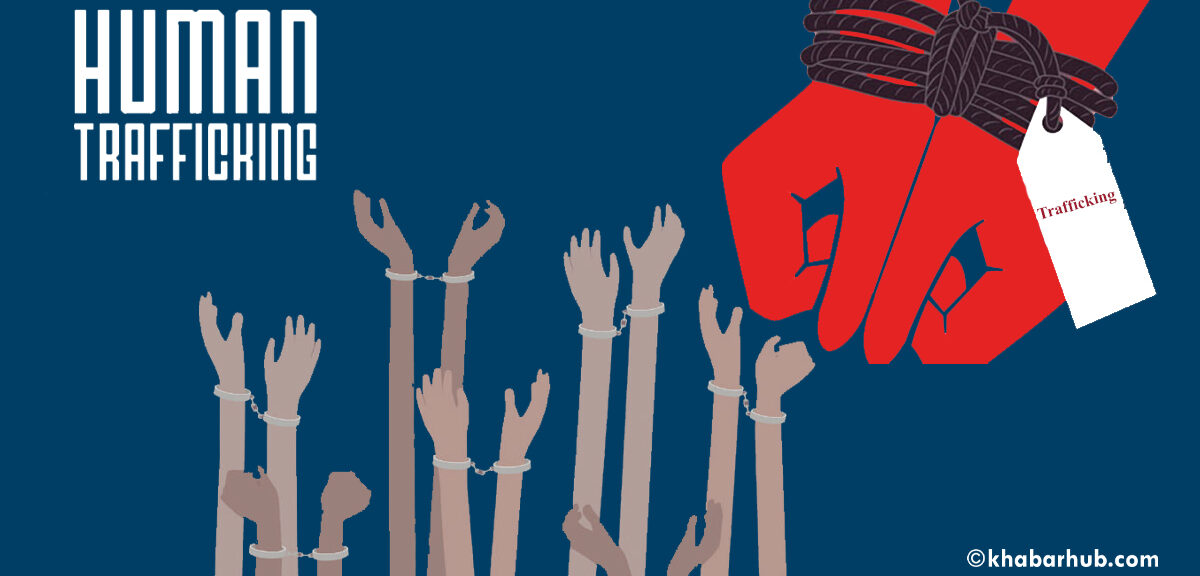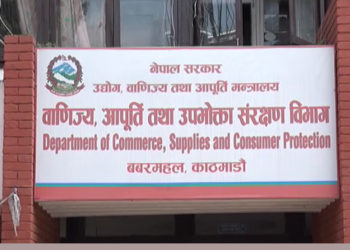COVID-19 pandemic has placed the world under massive pressure and difficulty, which has affected and brought about huge changes in the lives of the people all around the globe.
One such concern to which the pandemic has brought is the threat to the lives of the victims of human trafficking. Human trafficking is one of the most money-making criminal activities in the world affecting more than 40 million victims in the world.
With the implementation of restrictions and new measures such as strict lockdown of towns and cities and the closure of borders within the states and across the nations to curb the spread of the virus, it has come to notice that the nature of human trafficking has taken a different twirl and brought about a new variant in the way the traffickers work across the globe.
Despite these restrictions, it appears that there has been no decrease in the criminal activity of the traffickers. Several cases have been registered amidst such a global pandemic crisis.
A report of the United Nations Office on Drugs and Crimes (UNDOC), the COVID-19 pandemic has further exposed the victims of trafficking to a greater threat of mistreatment.
It has been reported that the UK Metropolitan police have rescued many victims of human trafficking mostly from China and Romania in Westminster, London.
The challenge further lies in the urgent situation faced by these rescued victims to return to their home amidst the nationwide lockdown and the sealing of the borders.
According to the report of the United Nations Office on Drugs and Crimes (UNDOC), the COVID-19 pandemic has further exposed the victims of trafficking to a greater threat of mistreatment.
The pandemic has hindered the efforts of the state system and the NGO’s work to provide the basic needs and facilities to the victims of the trafficking.
The UN has warned that the other major setback amidst the pandemic is the obscurity in the mission to identify the victims.
The Paris based Financial Action Task Force (FATF) has stated that due to the pandemic there has been a setback in the activities of the government organizations who were occupied in detecting the cases of human trafficking, therefore taking advantage of this situation it has been trouble-free for the traffickers to get hold of the victims since most of the several cases go undetected.
The living conditions at which the victims and the survivors are thriving on is another alarming issue that the COVID-19 has brought up.
The COVID-19 pandemic has also limited the resources that the victims and survivors depend upon.
All the necessary operations that were carried out to rescue and support the victims are now facing a lot of challenges and difficulties with the delay in their legal procedures, mostly because the countries are prioritizing and shifting their focus to deal with their other domestic crisis caused by the pandemic.
The living conditions at which the victims and the survivors are thriving on is another alarming issue that the COVID-19 has brought up.
The ambiances at which the survivors are living and working are unhygienic and unsafe.
To maintain social distancing as advised by the government health officials to curb the spread of the virus is not practical in the environment at which they live that further makes them a vulnerable section of people easily exposed to the virus, altogether difficult for them to recover from the virus as they have poor access to the basic medical facilities.
The Arise foundation that has been working to combat human trafficking all around the world has reported that in countries like India, the migrant workers from various industries such as construction workers, tea gardeners, domestic workers, and other daily wage earners have been jobless due to the pandemic.
Research suggests that more than 81 percent of the people in the global workforce have been affected by the full and partial lockdown in respective areas.
The International Labor Organization (ILO) has anticipated that about 1.25 billion workers are working in sectors that are at a high risk of extreme and distressing conditions.
This economic pressure on these families has made them the most vulnerable group that would tend to get exposed to trafficking in the post-COVID-19 crisis who are in search of jobs and economic opportunity.
The COVID-19 pandemic has also led to a rise in the means of online trafficking that mostly includes children as victims.
The Federal Bureau of Investigation (FBI) National Press office has stated that with the shutting down of the educational institutions, there has been an increase in the presence on the screen time by the young children who are into using various platforms of social media, which has made the young children an easy target for the predators to get them into online exploitation of child trafficking.
The UNDOC reports state that the children are at a higher risk of mistreatment amidst the pandemic. In the rural areas of India, children coming from the below poverty line background could be more prone to child trafficking due to the economic stress their family has been facing as the pandemic has compelled them to come out on the streets to beg for food and money.
With this thirst and temptation to earn money to meet the necessities they often tend to be easy and chief targets for child trafficking.
Child care initiatives have also been functioning to give treatments, support programs, and food assistance to the survivors and victims of trafficking.
The UNDOC has been regularly monitoring the crisis of human trafficking by building its networks and global partners to collect the funds for supporting the victims of trafficking to provide them with basic essential supplies at the time of the global pandemic crisis.
The UNDOC has also been supporting the NGOs all around the world to assist the anti-trafficking organizations to continue with their task of helping the victims and survivors of human trafficking.
An initiative such as the National Human trafficking hotline, the Domestic Victims of Human Trafficking Program, and Trafficking Victim Assistance Program has also been functioning to deal with the challenges related to human trafficking amidst the COVID-19 pandemic.
Child care initiatives have also been functioning to give treatments, support programs, and food assistance to the survivors and victims of trafficking.
As the entire world is combating a global pandemic crisis that has impacted all of our social, economic, political, and even our mental wellbeing, it is necessary that amidst all of these, there is a need to take a call and aid the requirements of the helpless survivors of trafficking.
They should not be left unaided to suffer at the time of such a worldwide pandemic crisis. It should be the responsibility of the government and civil societies to take effective actions and measures to protect the victims and survivors of human trafficking.
(The writer is a Research Scholar at the Center of South Asian Studies, School of International Relations, Jawaharlal Nehru University, India)









Comment